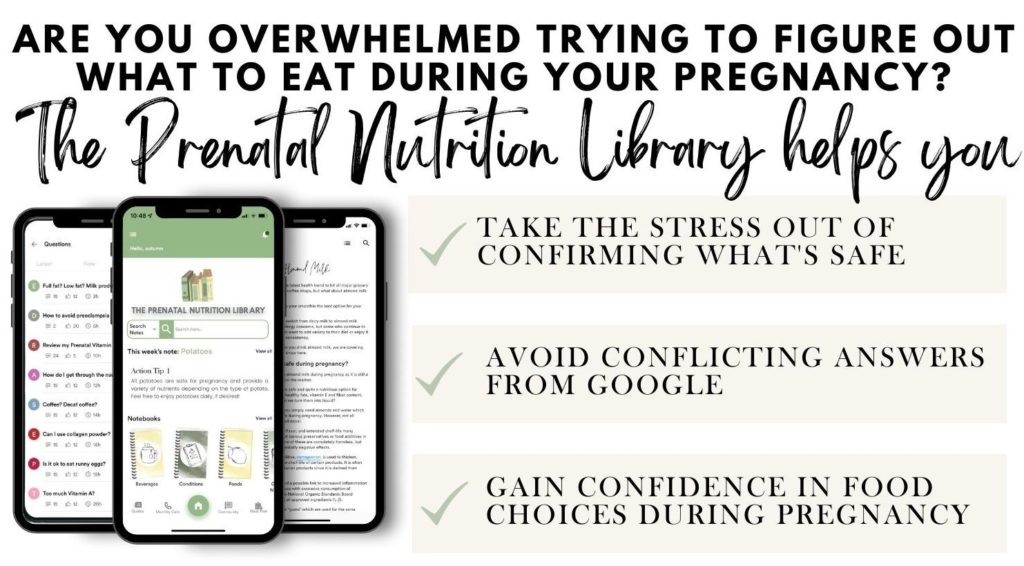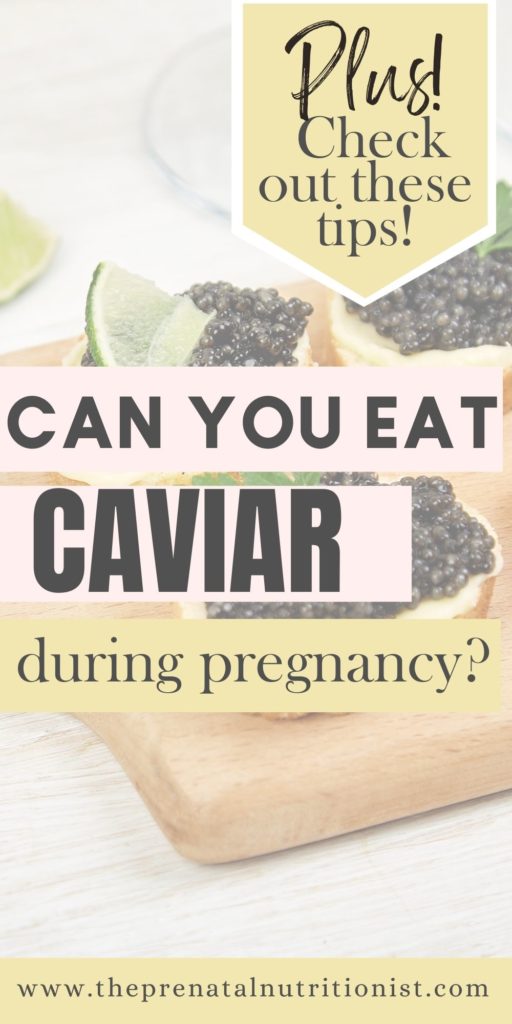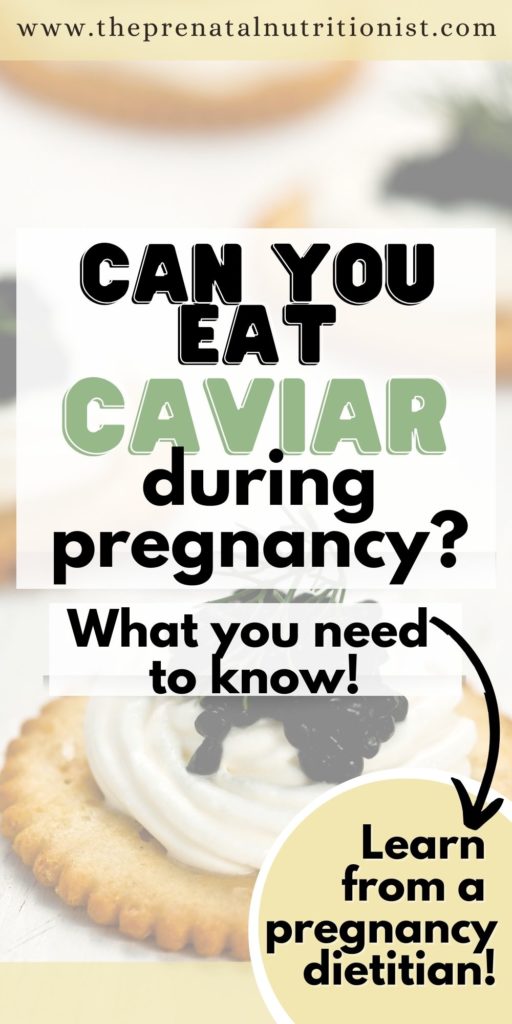
Pregnancy is a very special time. It’s a life-changing experience that comes with a lot of changes, including changes to a person’s body, mindset, and, often, nutrition. Eating a variety of nutrient-dense foods is important for keeping both mom-to-be and her growing baby healthy.
Caviar is a popular food that is loaded with vitamins and minerals. It’s a great source of omega-3 fatty acids, which may play a role in the prevention of preeclampsia, as well as iron, magnesium, selenium, and vitamins A, D, and B12.
Just one serving (1 tablespoon) of caviar provides over the currently recommended daily amount of B12 for pregnancy. Vitamin B12 is crucial during pregnancy as it supports the development of the baby’s nervous system, helps prevent neural tube defects, and ensures healthy red blood cell formation for both the mother and the growing fetus. With so many nutritional benefits, it’s no wonder that people all over the world have enjoyed caviar for centuries.
However, eating raw and undercooked seafood can pose a potential food safety risk for pregnant women and their babies. This is why I’m dedicating today’s post to discussing whether or not caviar is safe to eat during pregnancy.
Can You Eat Caviar When Pregnant?
The FDA recommends that pregnant people avoid raw fish, fish with high levels of mercury, or any type of shellfish (like raw oysters) that hasn’t been thoroughly cooked because of the risk of contracting foodborne illness. (As for what seafood you can safely eat during pregnancy, check out my post about safe seafood during pregnancy.)
Fresh caviar is typically unpasteurized and served raw. However, there are some types of caviar that have been treated with heat to kill potentially harmful bacteria. This process is known as pasteurization.
When choosing caviar during pregnancy, it’s best from a food safety perspective to opt for pasteurized varieties. Canned, tin, and jarred caviar from grocery stores are often pasteurized. Always be sure to check the food labels to confirm.
Eating caviar during pregnancy can be a great way to satisfy a craving for salty food. Be sure to choose a pasteurized option, check the food labels, and store it in the fridge.
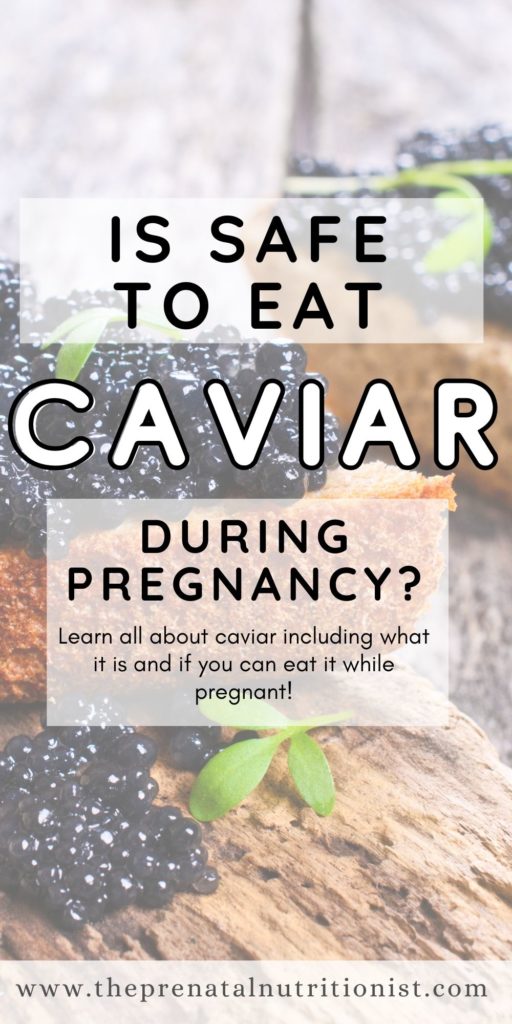
What Is Caviar?
Caviar is a delicacy that has been enjoyed by people around the world for centuries. Russian royals are credited for making caviar the modern-day elegant and expensive appetizer we know it as today. Caviar is highly prized for its exquisite taste and is often associated with luxury and fine dining.
But what exactly is caviar?
Caviar is fish eggs, or roe, specifically from a type of fish called sturgeon.
Traditionally, only sturgeon roe from wild sturgeon living in the Caspian and Black Seas (Beluga, Osetra, and Sevruga) was considered true caviar. Today, the roe of other sturgeon species, like Kaluga, Sterlet, Siberian Sturgeon, and White Sturgeon, is recognized as caviar, and eggs from all other types of fish are roe.
It’s worth noting, however, that in the United States, any salted-cured fish roe can be labeled as caviar. Most other countries around the world define “caviar” as salted-cured roe that only comes from sturgeon fish.
As you might expect, making caviar is a meticulous process. Once harvested, the eggs are rinsed and inspected to remove broken eggs and impurities. Then, a very specific amount of salt is added for taste and preservation. The caviar is chilled while it absorbs the salt, then it’s drained and carefully blotted dry. Before packaging, the roe is tasted and graded.
Typically, caviar is graded by their size, texture, and flavor. On the more expensive end is grade 1 caviar, which consists of firm, large, and uniform eggs. Grade 2 caviar is less expensive, delicate, and uniform than grade 1 caviar.
Caviar can be packaged by hand into lacquer-lined tins, which are then tightly sealed. From there, caviar is usually aged for at least three months. Traditional caviar is perishable and requires refrigerated storage. Caviar can be pasteurized to allow for room-temperature storage for up to a year. As a heads up, some people say pasteurized caviar has a slightly different flavor and texture than traditionally processed varieties.
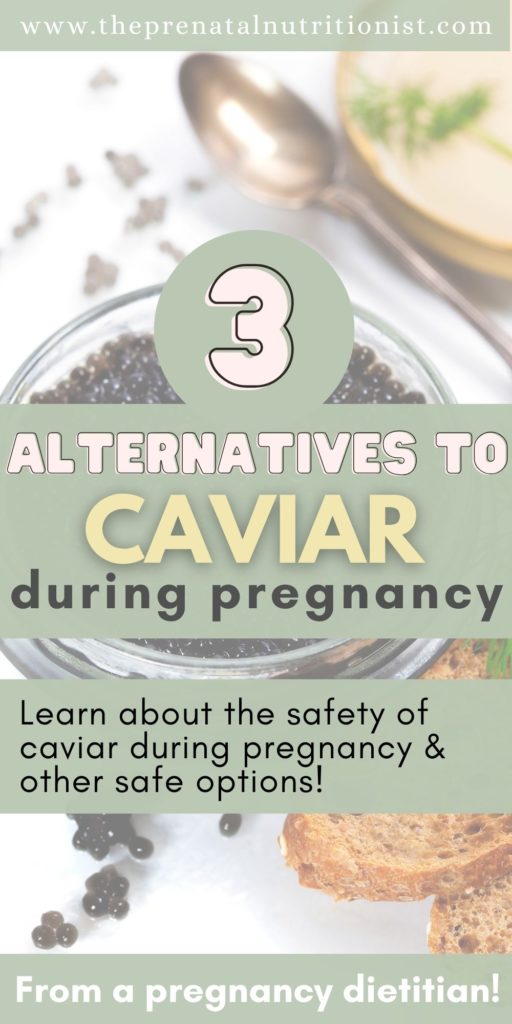
Caviar Alternatives
Seaweed Caviar
If you don’t like caviar or are looking for an alternative, seaweed caviar is a plant-based alternative to caviar that is closest in flavor and texture to the real thing. Because it’s made with seaweed, it has a salty ocean flavor that is capable of satisfying your caviar craving. Seaweed, in moderation, is also a good source of many important nutrients for pregnancy.
Cavi-Art seaweed caviar looks just like the caviar you’ll find on maki rolls at a sushi restaurant.
Couscous
Couscous is another great alternative that is much more affordable than caviar. It might seem strange to think of couscous as an alternative to caviar, but it’s known as “faux-caviar” for a reason!
With the right preparation, couscous can mimic the texture and appearance of caviar. To make faux-caviar at home, boil couscous in heavily salted water until al dente, drain the water, then add olive oil, olive brine, and fish sauce. It’s important to know the nutrition properties are different. Couscous provides fiber, some plant-based protein, and B vitamins. It is not a source of omega-3s or selenium like caviar.
Smoked Salmon
This alternative may have caught you by surprise because, visually, it doesn’t look similar to caviar. However, smoked salmon can provide a similar umami flavor and richness as caviar. It is also an excellent source of protein, omega-3 fatty acids, selenium, and vitamin B12, making it a nutritious choice.
The best practice for food safety during pregnancy is to choose hot smoked salmon versus cold smoked salmon. Hot smoked salmon is considered safe for pregnancy because it is fully cooked during the smoking process. The high smoking temperatures, typically between 120°F to 180°F (49°C to 82°C), effectively kill any harmful bacteria, such as Listeria monocytogenes or parasites, that may be present in the raw fish.
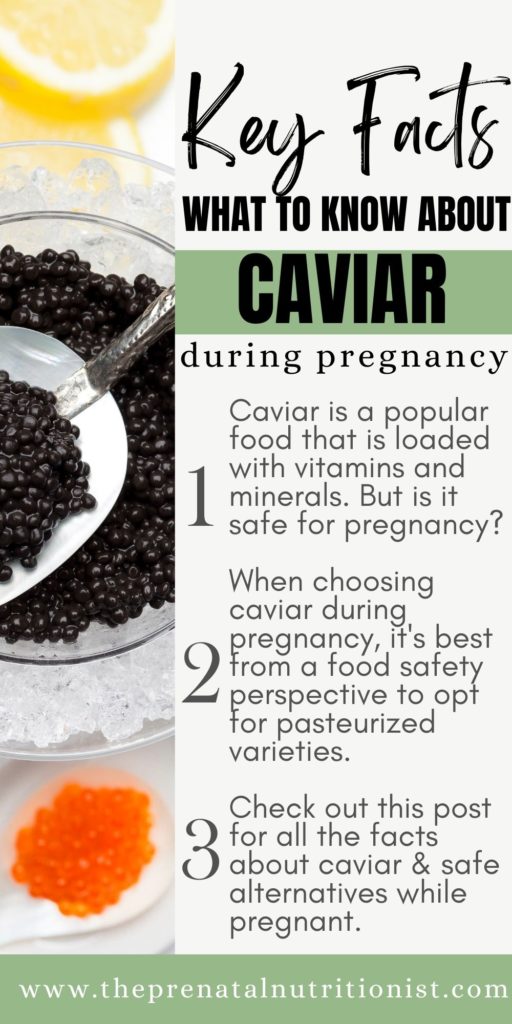
Caviar is considered a delicacy loaded with important nutrients and considered safe for pregnant women to eat when pasteurized.
Because fresh caviar is traditionally made from raw fish eggs that are unpasteurized, it does have a slightly higher risk for the potential to cause foodborne illness. This does not mean it WILL, just an increased risk. The good news is that canned varieties of caviar found in grocery stores are usually pasteurized and considered a safe option for pregnancy.
Explore my blog to learn more about other types of seafood and whether or not they’re safe for expectant mothers to enjoy. My post, “Can You Eat Crab Meat While Pregnant?” is a great place to start. Or you can head straight over to the blog to learn more about other nutrition topics for every stage of your pregnancy journey.
While you’re here, be sure to download my free one-week pregnancy meal plan and sign up for The Prenatal Nutrition Library. Inside The Prenatal Nutrition Library, you can search thousands of topics, foods, and Q&A answered by pregnancy-registered dietitians for a quick, evidence-based answer. Want to test it out first? Download the app for free on Apple or Android to get a peek inside!
